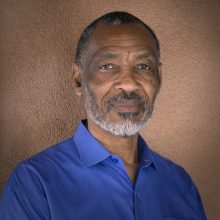Most of us are slowly moving out of quarantine; we will encounter various situations along our path.
Annica, (Impermanence), Dukha, (Suffering), and Anata, (No-Self) are the Buddha’s next teachings after the Noble Truths. There is an emotional process, such as the loss of someone, employment, and the way things used to be. There are also the racial and political emotions, local and global. Understanding that the level of sickness, death, wrongdoing and loss is contentious, there is invaluable insight if we choose to be mindful as the layers of life unfold in our presence.
Impermanence is the most brilliant teacher of all. When we get involved with something, we sometimes forget that there will be an end. The loss can be devastating and enlightening to the natural process of Nature.
Suffering is our unintentional cultivation of the response to the forgetfulness of the end. The grieving heart is natural when we allow the process to happen. No-Self is a level of becoming impersonal that requires a personal commitment.
The eight winds of the Dharma demonstrate the vicissitude of life. These eight comes in pairs of four, and similar words can be associated with them. The groups are: Improvement and Defeat; Praise and Blame; Fame and Disgrace; and Happiness and Sorrow.
For example, someone gives me praise, I treasure that moment or situation, and the wisdom. When someone blames me, I am mindful of the moment or situation and take in the wisdom. After several repetitions of this, the Self will understand that this is enough and will pass. Eventually, the impersonal presence will become comforting.
Dancing with the Three Characteristics takes cultivation, and steadying the mind is developed.
Towards the end of the chant of the Mangala Sutta, “The Highest Blessings”, it states “although being involved of worldly ways, unshaken the mind remains.” This is about the vicissitude mentioned. (Sutta-Nipata: Mahamangala Sutta).

